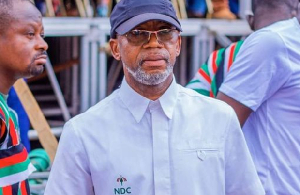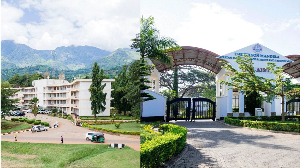Government of Ghana has taken the boldest decision yet this year: it has expressed firm intent to implement a no-subsidy regime for petroleum and electricity pricing in this country (at least, until subsidies can be better targeted to the genuinely excluded). It is furthermore endorsing the plans of the key entities in the public energy sector – VRA, TOR, ECG, GRIDCO, etc. – to access commercial capital and create financial relief for their operations through the expansion of their economies of scale.
We are sure that the politicians will allow the bold and proficient technocrats managing the energy situation free reins to determine what is in the best interest of the public energy sector. To enable civil society, interested lay people, and informed experts outside the public sector, to contribute their widow’s mite of insight, however, the recommendations of all consultants engaged in this process should be published on the Ministry of Energy’s website. Before a thorough study of the proposed new regime, and in an immediate reaction to the Minister’s statements, we are minded to make the points below.
Ghana has enjoyed quasi-concessionary supply of petroleum from Nigeria for some time now. We cannot assume that once the refinery is expanded to, say, 100,000 barrels, supply from Nigeria will still provide the best terms. Yet the freight advantages of buying from Nigeria are significant. The smart thing to do will be to start exploring in the Gulf of Guinea neighbourhood. Equatorial Guinea and San Tome and Principe seem like good prospects. Gabon is also interesting. It is great that the course of deregulation is to enable private traders to import crude. The self-interest of such traders will ensure “search efficiency”. The credit crunch will, of course, make it difficult for a frontier market operation like TOR or VRA to raise international finance. But that is what the World Bank’s MIGA is for. A substantial package of political insurance should decrease the risk premium for international investors, particularly for a business plan that explicitly emphasises that the refinery aspires to the status of a regional supplier. In fact the China African Development Fund and other hybrid sovereign-private equity and infrastructure funds should be eager to attend roadshows mounted by the likes of TOR. Nevertheless transaction costs could be reduced by designing a cross-entity that pools risks by combining features relevant to TOR, ECG, GRIDCO and VRA.
Without full analysis, we will attempt to cobble something together, just for debate purposes.
Our oil exploration companies will need generators to power their rigs, right? The current plan is for them to procure their own autonomous offshore generators. Can’t we design a deal that required them to buy their energy from an onshore generator? And go “half” the Uganda route – require that a specific quota of crude produced offshore Ghana should be refined locally? Of course they will yell and squeal. But we could then pull out, like the magnanimous folk we are, a carrot, namely that they could invest, on nice terms, in the onshore generator and the refinery expansion for good equity. Once we get them involved the credit position of the consortium – TOR, VRA, ECG, etc. – will improve significantly.
We would thus be on course to the development of an energy complex built on integration and scale. Remember also that these oil exploration companies have regional ambitions (and some like Tullow already produces oil in other West African countries). Now is the time to entice them with an entry into a “real” rather than hypothetical West Africa Power Pool.
Easier said than done, we know. But it never hurts to try. Anyway, that’s why we are asking for full transparency at the planning stages – at the recommendations level itself – to enable public analysis.
Maybe this time the powers that be will listen.
Compliments of IMANI – Ghana, your friendly local think tank
Opinions of Monday, 27 April 2009
Columnist: Imani














